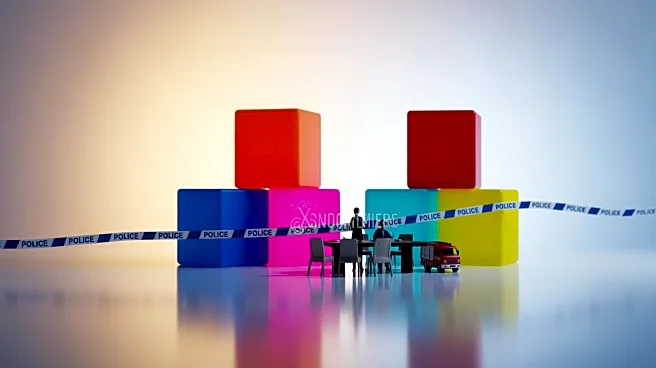What's Happening?
Brian Eno, renowned for his contributions to music and art, has launched a new series of paintings titled 'Blocks'. This collection consists of over 400 birch plywood slabs, each featuring unique designs
created through a process of spray-painting over stencils. The artworks, characterized by their vibrant colors and spontaneous compositions, will be available for purchase at London’s Paul Stolper Gallery starting November 12. Eno's approach to this series reflects his generative ethos, emphasizing randomness and unpredictability. The pieces vary in complexity and color, showcasing Eno's innovative use of materials and techniques.
Why It's Important?
The release of 'Blocks' highlights Brian Eno's continued influence in the art world, bridging his musical creativity with visual arts. This series not only offers collectors a chance to own a piece of Eno's artistic vision but also reinforces the growing trend of cross-disciplinary art practices. Eno's work often challenges traditional boundaries, encouraging viewers to engage with art as a process rather than a static product. The availability of these pieces at an accessible price point may democratize art ownership, allowing a broader audience to experience Eno's work firsthand.
What's Next?
The 'Blocks' series will be on display at Paul Stolper Gallery from November 14, 2025, to January 17, 2026. As the series becomes available, it is likely to attract attention from art collectors and enthusiasts, potentially influencing future trends in contemporary art. Eno's innovative approach may inspire other artists to explore similar methods, fostering a culture of experimentation and collaboration across artistic disciplines.
Beyond the Headlines
Eno's 'Blocks' series may also spark discussions about the role of chance and improvisation in art creation. By embracing unpredictability, Eno challenges conventional notions of artistic control and authorship, inviting viewers to reconsider the nature of creativity. This perspective aligns with broader cultural shifts towards valuing process-oriented experiences over finished products.










